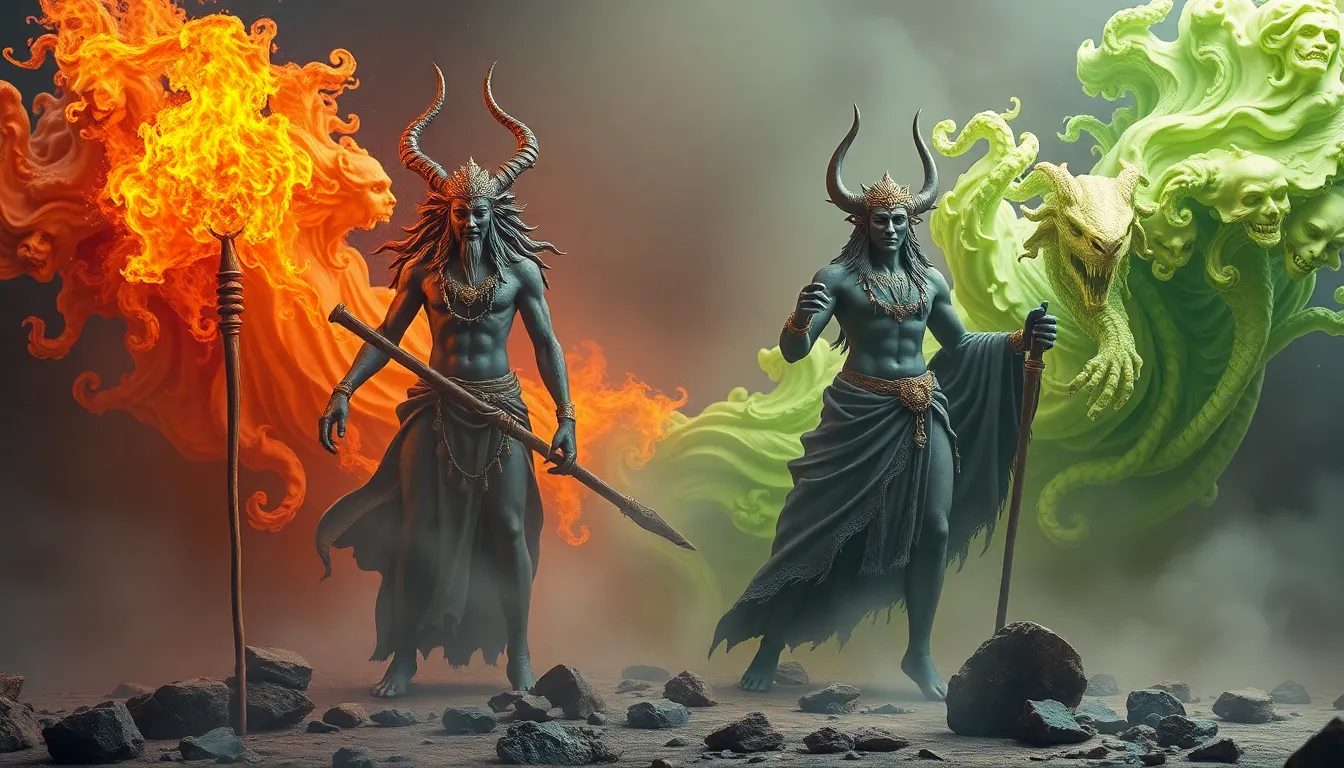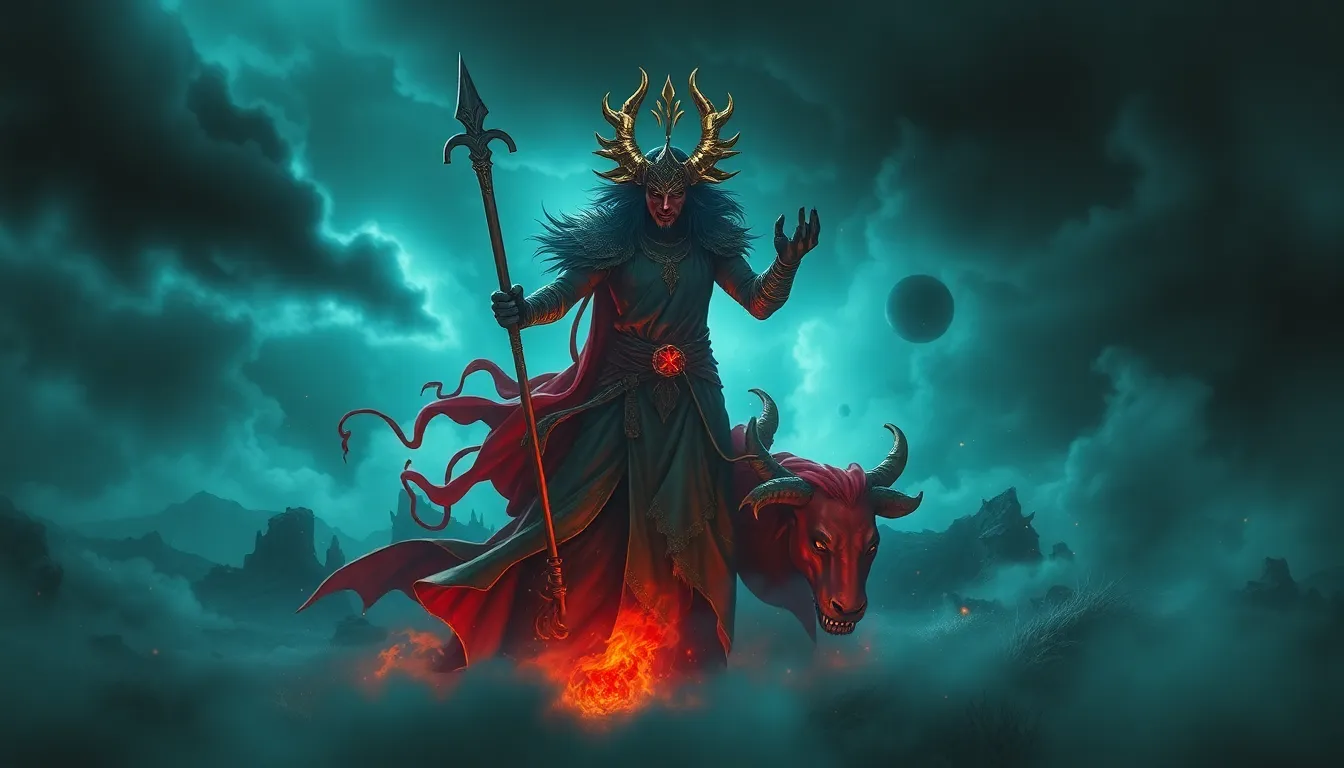When Mortals Cross the Line: The Terrifying Cost of Divine Punishment
I. Introduction
Throughout history, the concept of divine punishment has resonated deeply within various cultures, serving as a powerful reminder of the consequences of defying higher authority. Divine punishment is often portrayed as an inevitable retribution faced by mortals who transgress against the will of the divine. These narratives are not just cautionary tales; they reflect the moral and ethical frameworks of societies that seek to establish order and accountability.
This article aims to explore the themes and implications of divine punishment, examining how different cultures interpret these consequences and the psychological motivations behind human defiance against divine authority.
II. Historical Context of Divine Punishment
The understanding of divine punishment can be traced back to ancient civilizations, each with unique beliefs about the gods and the repercussions of offending them.
A. Ancient civilizations and their views on gods and punishment
- Mesopotamian beliefs: In Mesopotamian culture, the gods were seen as powerful beings who controlled all aspects of life. Disobedience could provoke their wrath, leading to natural disasters or personal misfortune.
- Greek mythology and the wrath of the gods: Greek myths are replete with stories of mortals who angered the gods, such as Prometheus, who stole fire from Zeus and was punished by eternal torment.
B. The role of divine punishment in religious texts
- The Bible: The story of Sodom and Gomorrah illustrates the catastrophic consequences of immorality and defiance against divine commandments.
- The Quran: The Quran recounts tales of past nations that faced divine retribution for their sins, such as the destruction of the people of Noah.
III. The Psychology of Defiance
Understanding why mortals challenge divine authority is essential to comprehend the full scope of divine punishment.
A. Understanding why mortals challenge divine authority
Many factors contribute to this defiance, including:
- A desire for autonomy and control over one’s destiny
- The allure of power and the belief that one can escape consequences
- A questioning of traditional beliefs and the nature of divinity itself
B. The allure of power and the hubris of mortals
Hubris, or excessive pride, often leads individuals to believe they can outsmart or defy the divine. This arrogance can result in catastrophic consequences, both personally and communally.
C. Case studies of individuals who faced divine retribution
Historical and fictional examples abound, showcasing the dire outcomes of defiance, such as:
- The tragic fate of King Saul in the Bible, who disobeyed God’s commands and faced dire consequences.
- The story of Macbeth, whose ambition and subsequent moral decline led to his downfall.
IV. Modern Interpretations of Divine Punishment
Today, societal views on divine punishment have evolved, influenced by secularism and moral relativism.
A. How contemporary society views divine punishment
In modern contexts, divine punishment is often viewed with skepticism, as many people turn to rational explanations for suffering and injustice.
B. The impact of secularism on belief in divine retribution
As societies become more secular, belief in divine punishment diminishes, leading to a reliance on human-made systems of justice.
C. The role of moral relativism in understanding punishment
Moral relativism challenges the notion of universal moral standards, complicating the understanding of divine punishment and its implications.
V. Case Studies of Divine Punishment in Literature and Media
Literature and media have long depicted themes of divine punishment, reflecting cultural beliefs and societal fears.
A. Analysis of classic literature
Works such as The Iliad and Paradise Lost illustrate the consequences of defiance against divine will, showcasing characters who suffer due to their hubris.
B. Modern portrayals in film and television
Films like The Omen and series such as Supernatural continue to explore these themes, often intertwining morality with supernatural elements.
C. Lessons learned from these narratives
These stories serve as cautionary tales, emphasizing the importance of humility and respect for the divine forces that shape our lives.
VI. The Consequences of Crossing the Line
The repercussions of defying divine authority can be profound and multifaceted.
A. Physical repercussions: disasters, illness, and suffering
Many cultures attribute natural disasters and personal misfortune to divine punishment for moral failings.
B. Emotional and psychological toll on individuals and communities
Communities often experience collective anxiety and fear when faced with perceived divine retribution, leading to social unrest and a crisis of faith.
C. Societal impacts: fear, control, and the maintenance of order
The threat of divine punishment can serve as a tool for social control, reinforcing moral behavior through fear of retribution.
VII. The Role of Faith and Redemption
Despite the fear surrounding divine punishment, many religious traditions offer pathways to forgiveness and redemption.
A. Pathways to forgiveness and redemption in various religions
- Christianity emphasizes repentance and the grace of God.
- Islam teaches the importance of seeking forgiveness through prayer and good deeds.
B. The transformative power of acknowledging wrongdoing
Recognizing one’s mistakes can lead to personal growth and spiritual renewal, fostering a deeper connection with the divine.
C. Examples of individuals who sought redemption after divine punishment
Many figures, both historical and fictional, illustrate the journey from sin to redemption, highlighting the possibility of transformation.
VIII. Ethical Implications of Divine Punishment
The morality of divine punishment raises significant ethical questions.
A. The morality of punishment: just or unjust?
Debates continue regarding whether divine punishment is a just response to human actions or an unjust exercise of power.
B. The impact of divine retribution on free will
Does the concept of divine punishment undermine human free will, or do individuals still bear responsibility for their actions?
C. Debates among theologians and philosophers
Philosophical discussions regarding the nature of justice, mercy, and punishment remain vibrant, influencing contemporary beliefs and practices.
IX. Future Perspectives on Divine Punishment
As societies evolve, so too may their perceptions of divine punishment.
A. How evolving societal values may change perceptions of divine punishment
As values shift towards greater inclusivity and understanding, the interpretation of divine punishment may become less rigid and more compassionate.
B. The potential for new interpretations of ancient beliefs
Future generations might reinterpret traditional narratives to align with contemporary ethical standards, emphasizing the importance of mercy and understanding over fear and retribution.




